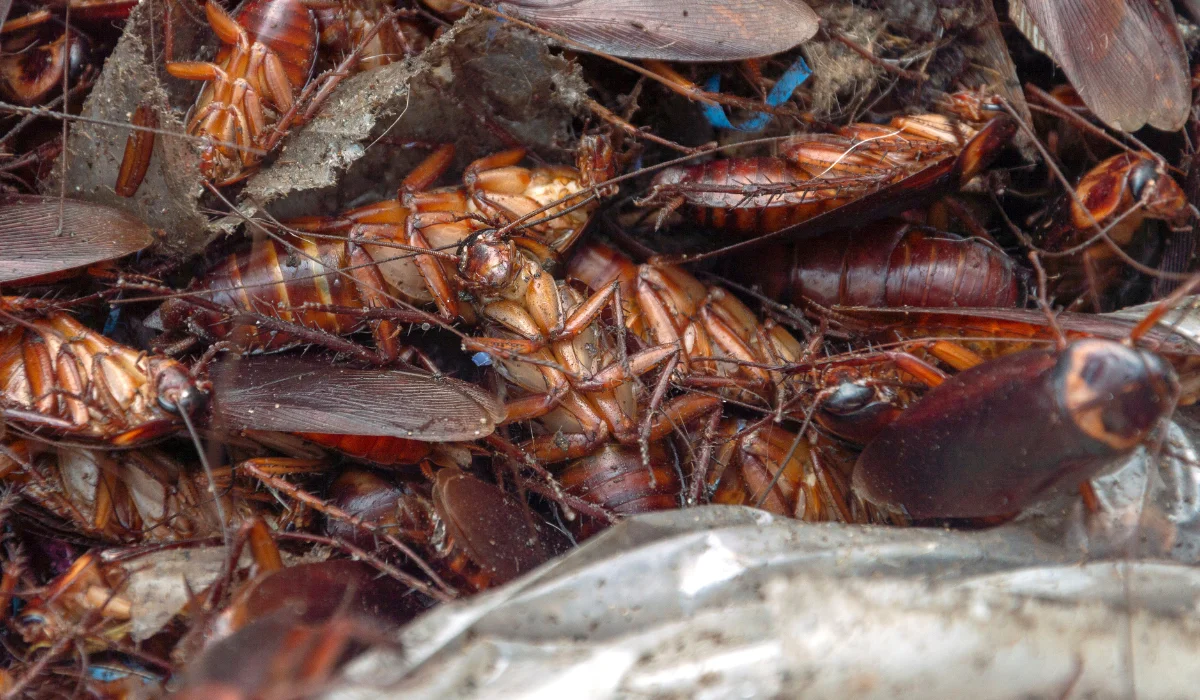
Roaches are a year-round problem in Louisiana. The heat, humidity, and abundance of hiding spots make it easy for infestations to grow, especially in kitchens and bathrooms.
If you’re seeing roaches pop up, you’re probably wondering how often you need pest control to keep them out for good. The answer depends on the type of roach, the severity of the infestation, and the duration of the issue.
Here’s what you need to know, especially if you live in Thibodaux, Houma, or anywhere else in southeastern Louisiana.
Key Takeaways
• Treat quarterly to stay ahead of common pests, such as roaches, ants, and silverfish.
• German cockroaches often require monthly treatments until they are under control.
• DIY pest control may not eliminate the root of the problem.
• Professional pest control services include follow-up inspections and preventive planning.
Roaches Thrive in Louisiana’s Climate
In southern Louisiana, cockroach infestations are common thanks to the warm, damp conditions. Roaches like to settle in crevices near water sources and food, such as kitchens, bathrooms, and utility rooms.
German cockroaches are the most difficult to treat. These pests breed rapidly and hide in hard-to-reach areas, such as behind appliances and within wall voids. Unlike larger roaches, such as palmetto bugs, German roaches can’t be managed with outdoor-only treatments. You need a targeted indoor approach.
How Often Should You Treat?
If you’re a homeowner dealing with light pest activity, quarterly treatments may be enough. But if you’re seeing live roaches during the day, finding egg cases, or noticing that DIY efforts aren’t working, your roach problem may be more serious.
In those cases, monthly or bi-monthly treatments are recommended, especially for homes with German cockroach activity. These treatments are often paired with insect growth regulators (IGRs) and bait placements to break their reproductive cycle.
At LaJaunie’s, our initial German roach service includes a free follow-up two weeks later. If the exterminator sees signs that the infestation hasn’t been entirely eliminated, they’ll schedule a second follow-up at the four-week mark. From there, a regular pest control plan takes over to keep your home pest-free.
The Importance of Follow-Up Visits
One treatment rarely eliminates a cockroach infestation. Roaches lay egg cases that hatch after the treatment is completed, which is why professional pest control always includes follow-up visits.
Each follow-up helps interrupt the pest life cycle and keeps your home from becoming a nesting site again. It also allows the technician to adjust the type of treatment if the roaches become resistant or change hiding spots.
Can DIY Pest Control Work?
DIY sprays and gel baits may offer temporary relief, but they come with drawbacks. Overuse of insecticides or applying products in the wrong spots can interfere with professional baiting methods. Roaches may avoid treated areas or develop resistance to store-bought products.
Additionally, most DIY products don’t reach deep into wall voids or baseboard crevices where cockroaches hide. That’s why integrated pest management strategies from a professional pest control company are usually more effective in the long run.
What’s Included in Professional Roach Control?
A licensed exterminator will begin by identifying the type of pest and assessing the severity of the infestation. Then, they’ll create a custom pest control plan that includes the appropriate type of treatment, such as baits, dusts, or residual products, for long-term control.
You’ll also get help sealing up access points with caulk and recommendations on sanitation to reduce future pest problems. LaJaunie’s Pest Control offers comprehensive treatments, including both interior and exterior services, as well as attic inspections when necessary. Additionally, we provide retreatment guarantees with our Healthy Home packages.
Call us to schedule your roach inspection today. We also handle other common pests that often co-occur with roaches, including fruit flies, silverfish, bed bugs, and termites.
What Makes German Roaches So Difficult?
German cockroaches are more than just a nuisance. Their droppings, shed skins, and egg cases can contribute to health risks, especially for children or those with asthma.
They reproduce quickly and tend to infest areas with even minor food debris. Because they’re resistant to many general pest control products, our technicians use a combination of targeted baiting, IGRs, and follow-up treatments to wipe out the colony.
Prevention Measures That Make a Difference
To help prevent a roach infestation after treatment, you’ll need to make your home less appealing to pests. Fix leaky plumbing, clean behind appliances, and keep dry goods sealed. Seal cracks and entry points with caulk, and make sure your kitchen stays clean, especially at night when roaches are most active.
Our technicians will identify high-risk areas during your service and provide you with personalized tips tailored to your home’s specific pest risks.
Year-Round Protection Works Best
In places like New Orleans, Baton Rouge, and LaPlace, roaches don’t take the winter off. Regular pest control treatments, especially on a quarterly schedule, can help prevent roaches and other pests from becoming recurring problems.
Our Healthy Home Package provides coverage for a wide range of pests, including cockroaches, rodents, ants, spiders, and more. We also offer pest control services for termites, wasps, and wildlife if needed.
FAQs
How often do I need pest control for cockroaches in Louisiana?
Quarterly treatments are effective for most homes, but monthly or bi-monthly visits are often necessary for severe infestations, especially with German cockroaches.
What’s the best way to get rid of a cockroach infestation?
The best results are achieved by professional pest control experts who utilize a combination of insect growth regulators, targeted baits, and follow-up treatments. DIY methods may not eliminate roaches or their eggs.
How can I prevent roaches from coming back after treatment?
Keep your home clean, store food in sealed containers, fix leaks, and seal gaps with caulk. Regular pest control visits also help reduce pest activity before it becomes a bigger issue.














